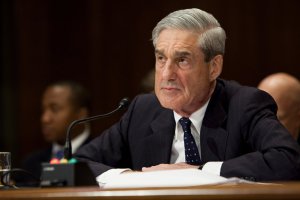Jane Mayer at the New Yorker has an in-depth lengthy narrative report on Christopher Steele, the former M.I.6 spy and Russia specialist. This is the most concise narrative report I have seen on this subject. Christopher Steele, the Man Behind the Trump Dossier (ecerpts):
 Christopher Steele had spent more than twenty years in M.I.6, most of it focussing on Russia. For three years, in the nineties, he spied in Moscow under diplomatic cover. Between 2006 and 2009, he ran the service’s Russia desk, at its headquarters, in London. He was fluent in Russian, and widely considered to be an expert on the country. He’d also advised on nation-building in Iraq.
Christopher Steele had spent more than twenty years in M.I.6, most of it focussing on Russia. For three years, in the nineties, he spied in Moscow under diplomatic cover. Between 2006 and 2009, he ran the service’s Russia desk, at its headquarters, in London. He was fluent in Russian, and widely considered to be an expert on the country. He’d also advised on nation-building in Iraq.
* * *
Steele worked out of the British Embassy for M.I.6, under diplomatic cover. His years in Moscow, 1990 to 1993, were among the most dramatic in Russian history, a period that included the collapse of the Communist Party; nationalist uprisings in Ukraine, the Caucasus, and the Baltic states; and the dissolution of the Soviet Union. Boris Yeltsin gained ultimate power in Russia, and a moment of democratic promise faded as the K.G.B.—now called the F.S.B.—reasserted its influence, oligarchs snapped up state assets, and nationalist political forces began to emerge. Vladimir Putin, a K.G.B. operative returning from East Germany, reinvented himself in the shadowy world of St. Petersburg politics. By the time Steele left the country, optimism was souring, and a politics of resentment—against the oligarchs, against an increasing gap between rich and poor, and against the West—was taking hold.
After leaving Moscow, Steele was assigned an undercover posting with the British Embassy in Paris, but he and a hundred and sixteen other British spies had their cover blown by an anonymously published list. Steele came in from the cold and returned to London, and in 2006 he began running its Russia desk, growing increasingly pessimistic about the direction of the Russian Federation.
Steele’s already dim view of the Kremlin darkened in November, 2006, when Alexander Litvinenko, a former Russian K.G.B. officer and a Putin critic who had been recruited by M.I.6, suffered an agonizing death in a London hospital, after drinking a cup of tea poisoned with radioactive polonium-210. Moscow had evidently sanctioned a brazen murder in his own country. Steele was put in charge of M.I.6’s investigation. Authorities initially planned to indict one suspect in the murder, but Steele’s investigative work persuaded them to indict a second suspect as well. Nine years later, the U.K.’s official inquiry report was finally released, and it confirmed Steele’s view: the murder was an operation by the F.S.B., and it was “probably approved” by Vladimir Putin.
Steele has never commented on the case, or on any other aspect of his intelligence work, but Richard Dearlove, who led M.I.6 from 1999 to 2004, has described his reputation as “superb.” A former senior officer recalls him as “a Russia-area expert whose knowledge I and others respected—he was very careful, and very savvy.” Another former M.I.6 officer described him as having a “Marmite” personality—a reference to the salty British spread, which people either love or hate. He suggested that Steele didn’t appear to be “going places in the service,” noting that, after the Cold War, Russia had become a backwater at M.I.6. But he acknowledged that Steele “knew Russia well,” and that running the Russia desk was “a proper job that you don’t give to an idiot.”



